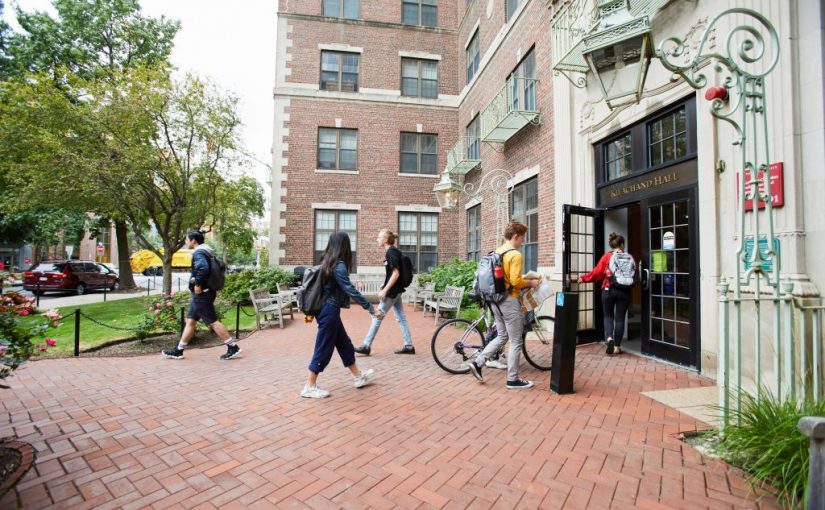By Ellie Olsen (SAR'23)
Above: My view of the Prudential Tower and downtown Boston from my dorm window.
In high school, I was involved in upwards of 10 extracurriculars. I played two sports, was an officer for student council and National Honor Society, played in the band, was involved with my church, and more. The time I needed to devote to these activities was balanced, with all of it fitting together neatly. Most of them also doubled as social time because my friends and I joined the same clubs. If I tried to be involved with that same number of activities in college, I would fail miserably.
College extracurriculars ask much more time of you than high school ones did, and because of that, I knew I would struggle to maintain the same level of involvement. I was given a piece of advice before going to college about how to choose among the thousands of activities that colleges have to offer, and regardless of how involved you were in high school, I think it’s important to consider: “Choose three things to get involved in when you get to college: one for academics, one for service, and one for social interaction.”
As a note before I tell you what I chose to get involved in, it will take some trial and error to find the perfect three. You should probably start with 8 or 10 and narrow down which ones serve you the most, providing a balanced array of opportunities and engagement. Also, three is a guideline. I have 5 main extracurriculars that I have been involved with for most of college, and other ones have come and gone or require less time and can be added on, so take everything that I say here with a grain of salt.
Now for my big 3.
1. Academics. I am a health science major looking to get my Master of Public Health and then continue into clinical medicine. To boost my skill set and strengthen my resume, I joined Peer Health Exchange as a Health Educator. I teach a public health curriculum to Boston Public School high school students, and can say with confidence that I now know how to communicate health information and work well with young people, both of which will be valuable to my professional career.
2. Service. I have participated in community service activities my whole life and quickly found that I was missing it when I got to college. I joined Camp Kesem, a free camp run by college students for kids whose lives have been affected by their parent’s cancer, to both develop my leadership skills and become more involved in service. I am now a development coordinator and have organized fundraisers that have gathered our chapter more than $20,000 in 5 months.
3. Social. I have been inseparable from my best friend since we met in seventh grade, and going to college left a hole that she had filled in my everyday life. I struggled to find close friends and, though I was successful in making a few, I wanted a larger group of people to be involved in, so I joined Sigma Kappa, a panhellenic sorority, and Omega Phi Alpha, a community service sorority. I have absolutely loved my time in both of them and have found it so easy to find friends among girls that are like minded and hold similar values.
I want to emphasize again that getting involved is not a formula. Nobody can tell you what three things to join or if three is going to be your magic number. I also have a job that I love at the FitRec center, served as an FY101 peer mentor (highly recommend taking FY101!!!), am a Kilachand ambassador, will start a job as an EMT in the fall, and do normal college things like working out, going out with friends, and sitting around watching movies when I don’t feel like doing anything else. These are all integral parts of my college experience and have made my time at BU as amazing as it has been in just my first two years.
I think getting involved is a good thing to start thinking about before you’re in college and even for my fellow college students, it is never too late to join something that looks exciting to you. My best piece of advice is to join what you find interesting, stop being involved in something if it is not adding great value to your life, and do what you need to to maintain your balance, which for me is fitting my main extracurriculars into one of those 3 categories.



